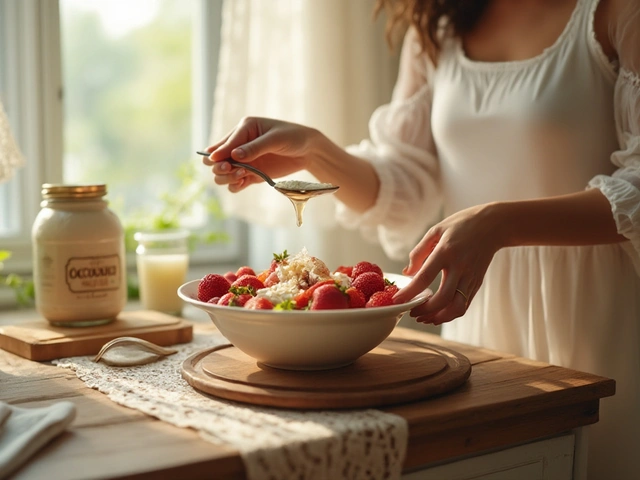Unravelling the Crimson Elixir: An Introduction
You might have heard the age-old adage, "A glass of red wine a day keeps the doctor away." Well, maybe that's not exactly how the saying goes, but the concept isn't entirely wrong either. Red wine, aside from its deep, velvety allure, has been linked over the years to a variety of health benefits when consumed in moderation. I remember sharing a bottle of a splendid Pinot Noir with my spouse, Louise, and we couldn't help but chat about whether the health benefits attributed to our cherished evening elixir were fact or mere fiction. Today, we shall dive into that pool of intrigue and clarity.
Red Wine and the Heart: A Toast to Cardiovascular Health
Red wine's long-standing association with heart health deserves a spotlight, wouldn't you agree? Numerous studies suggest that moderate consumption of red wine can help in reducing heart disease risks. Now, this doesn't mean you start downing bottle after bottle. Remember, the trick is in the 'moderate' part. The idea is based on what scientists call 'the French paradox'. The French, despite their high intake of saturated fats, seem to have a relatively low incidence of heart disease. And what's a common feature in their lifestyle? You guessed it - red wine.
To delve deeper into this, a key component found in the skin of red grapes - resveratrol, might be your heart's secret best friend. A few researchers believe that resveratrol, packed with antioxidant properties, might help protect your heart's blood vessels by reducing 'bad' LDL cholesterol and preventing blood clots. Now, isn't that something? But wait, an important clarification is that while wine does contain resveratrol, consuming it in moderation is essential, as excessive consumption might actually do more harm than good.
Who Would Have Thought! Wine for Longer Life-
Would you believe me if I told you that red wine could potentially aid in living a longer life? It sounds off, right? But some studies suggest it might be true. It all again comes back to our small super-ingredient, resveratrol. Studies have indicated that there might be a link between resveratrol and the activation of a protein that acts as an anti-ageing agent. While this is incredibly fascinating, it also comes with a pinch of caution. Before you start seeing yourself as the next Highlander, guzzling down bottles of wine for immortal life, scientists stress that this doesn't exactly warrant a change in drinking habits as too much alcohol can have detrimental effects.
Navigating the Labyrinth of our Minds: Red Wine and the Brain-
Now moving on to the labyrinth that is our brain. Here's a fun fact for you - did you know that the brain, while only making up about 2% of your body weight, utilises up to 20% of your body's energy? Crazy right? I mean, talk about high maintenance! Anyway, the exciting news is that red wine can potentially play a role in brain health. You can thank our mate resveratrol again for this because it might help keep your brain's blood vessels free from blockages, thereby possibly avoiding detrimental conditions like stroke. Also, moderate red wine consumption might help in keeping Alzheimer's disease and dementia at bay, as per some scientists.
Nevertheless, let's not forget the operative word here - moderation. Research also indicates that heavy drinking might negatively affect cognitive functions and cause neurodegenerative diseases. So while you might want to unleash the intellectual in you over a few glasses of wine, be careful not to overdo it, folks!
The Flip Side: A Word of Caution
While we've been singing praises about red wine, it's essential for us to remember its darker side too. Alcohol, in large amounts, can be downright deadly. The picture doesn't look so rosy anymore, does it? Overindulgence in wine, or any alcohol for that matter, can lead to an array of problems like liver damage, heart problems, addiction, and even an increased risk of certain types of cancer. Health experts suggest if you don't drink, there's no reason to start for the sake of potential health benefits.
A chat with my doctor during a regular check-up highlighted the need for balance and careful consideration. He advised that the idea is to not start drinking if you don't already, but if you do enjoy your wine, do so in moderation, keeping a check on your overall health, age, and lifestyle factors. Like everything, enjoy your red wine with a sense of balance and thoughtfulness.
So, as I wrap this up, it brings me back down memory lane to that lovely evening with Louise, over a glass of fine red wine, sharing laughter and contemplating life. Red wine, through centuries and across cultures, has been a symbol of joy and togetherness. Let's not wash that away in a flurry of health benefits and scientific terms. Health perks or not, the real beauty of a glass of red wine lies in the way it brings people together - a cherished moment, a shared memory, a toast to life.
You don't always need a reason to enjoy a glass of red wine, but if you feel let down by the scientific exploration, just remember - it's always wine o'clock somewhere!






